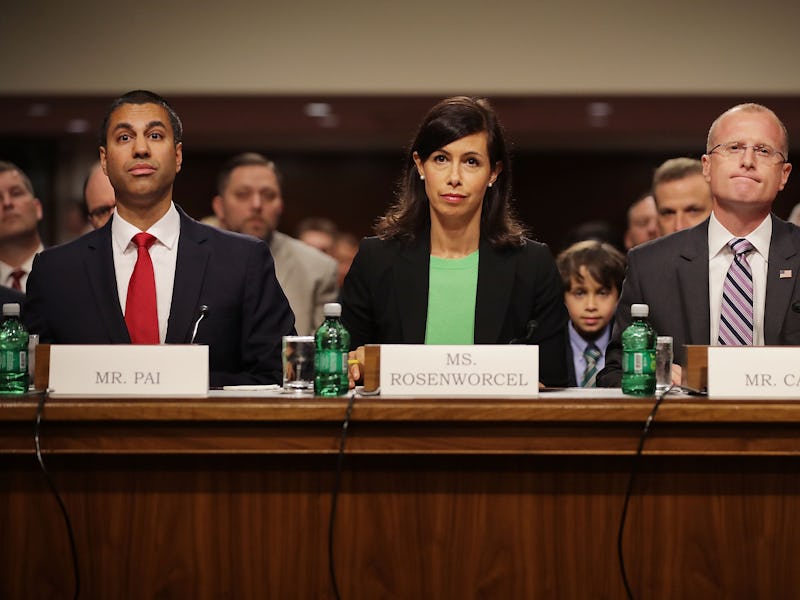Net Neutrality Has Survived for Years: Why This Might Be the Week It Dies
Whose side will finally prevail?

Republican Senator Ted Stevens gained infamy in 2006 when he gave his legendarily inaccurate description of the internet: “It’s not a big truck. It’s a series of tubes!” The reason he was talking about the internet at all was because of net neutrality — an issue that, 11 years later, might at last face its final reckoning.
Though many corporations and conservative lawmakers have long wanted net neutrality, their efforts to make it happen have been about as successful as Stevens’s attempt to describe the internet. That could change this week as Federal Communications Commission Chairman Ajit Pai is expected to release the draft of his new net neutrality rules ahead of the FCC’s final meeting of the year on December 14.
Eleven years ago, Stevens was speaking against a proposed amendment to a bill that would forbid internet providers like Verizon, AT&T, and Comcast from charging companies to have their data prioritized over others. That’s always been the crux of the net neutrality argument — whether all data should be treated equally, or whether those with deeper pockets should have the ability to pay to jump the line.
Now more than a decade later, Stevens’ wish to give corporations the choice to deliver information their way may finally come true. And while this is hardly the first time online activists have raised the alarm over net neutrality, the stakes have never been higher than they are now, with Republicans’ long-desired reforms at last within their grasp.
While the FCC did adopt in 2005 principles that were broadly favorable to net neutrality, there weren’t actually any explicit rules on the books until a decade later, despite repeated efforts both from internet activists looking to enshrine net neutrality and from telecom companies looking to end it.
This prolonged uncertainty set the stage for a series of battles — you probably heard about these, given how much the wider internet was made a part of the movement to save net neutrality. A court ruling in 2014 ultimately forced the FCC to reclassify internet providers as what are known as common carriers in order to enforce net neutrality, with President Obama specifically recommending such a move.
Unsurprisingly, Donald Trump takes a less positive view of net neutrality than his predecessor, and his FCC pick Pai moved swiftly in April to recommend the commission restore internet providers’ old classification, paving the way for the end of net neutrality. The FCC advanced Pai’s proposal in a May meeting, despite a coordinated nationwide effort to flood the FCC with pro-neutrality public comments — and the suspected use of bots to create anti-neutrality ones.
Now the December meeting is where the new rules will finally be laid down, with a draft version made available sometime this week. What exactly will be in them isn’t known, but what’s already been written provides a clue. At best, expect the rules to be loosened for corporations.
“We … propose to relinquish any authority over Internet traffic exchange,” the FCC’s initial net neutrality proposal said back in May.
While this may be a far more knowledgeable assessment than Stevens’s old line, they both ultimately mean the same thing: nothing good for net neutrality.